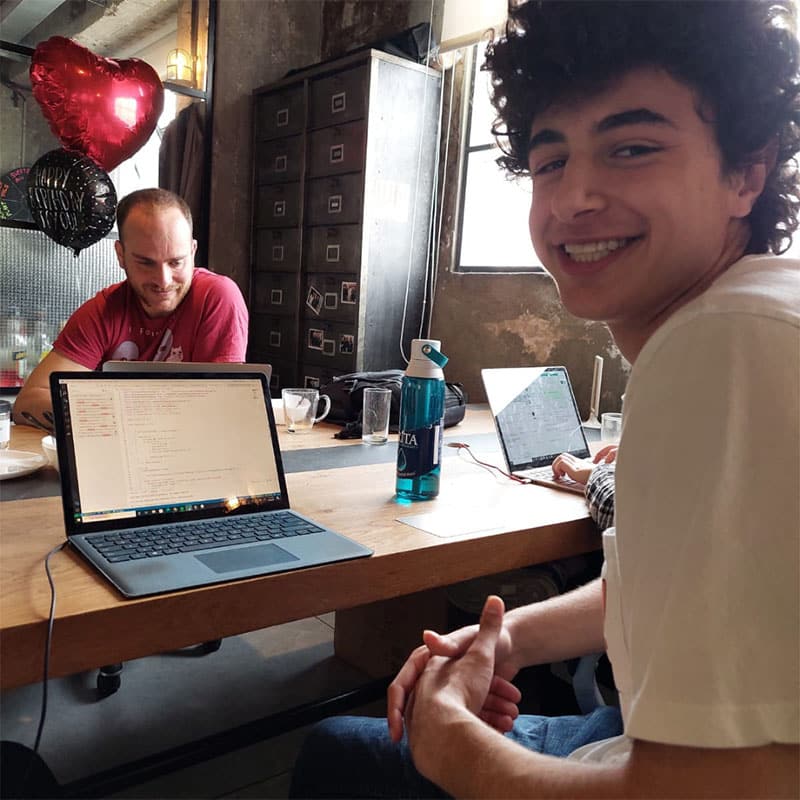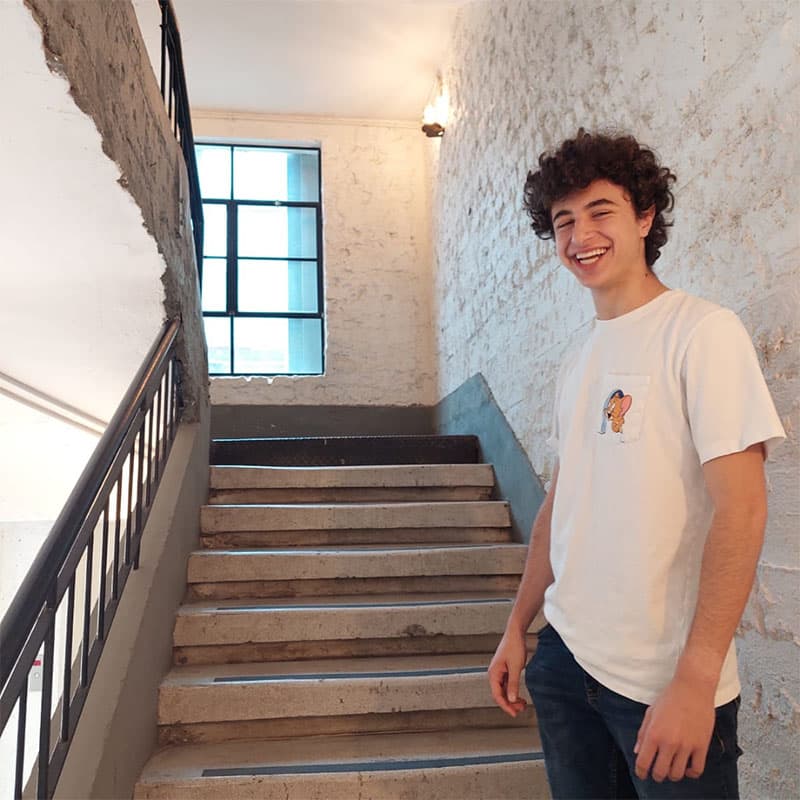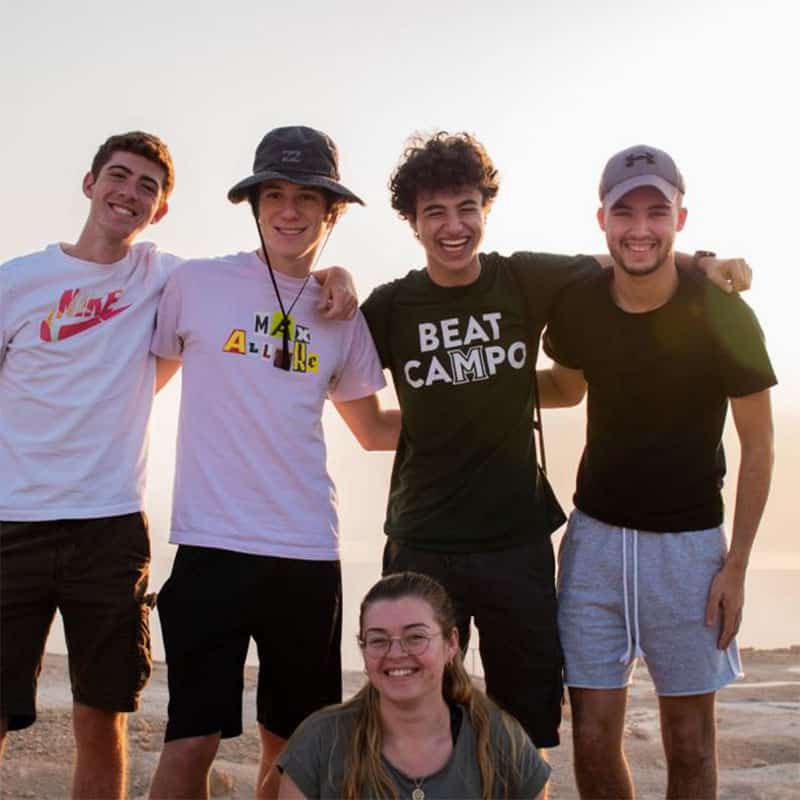Every morning during my 4 years in high school, I woke up and ate the same thing. Two slices of toast with peanut butter and banana and a cup of mint tea. Every once in a while if I felt a little adventurous I would change the flavor of the tea to something like lemon ginger. For me, that breakfast was safe. It was comfortable. I knew it tasted good and there was no room for error. It was my routine. If I woke up one morning and saw that we were out of bananas, it would throw off my entire day.
My whole life, I needed that security. I was not a fan of the unknown, planning my days to the hour. When something didn’t go the way I thought it would, I would get anxious. I thought routine would give me control of my life and control would bring me satisfaction. At Aardvark – all of that changed.
When my family proposed I take a gap year — or actually, let me rephrase that. When my family suggested that I put my entire life on hold and move across the world for a year to live in a city from my world history book with a group of kids I’d never met on a program I’d never even heard of – my answer was a swift “no”. If I couldn’t handle not having peanut butter and banana toast for breakfast, how was I supposed to handle the infinite unknowns that come with living by yourself across the world?
It took months of convincing from my siblings to get me to agree, and eventually, after countless dinner conversations, I finally decided to open my mind a bit, and join Aardvark. When I arrived in Israel, I tried to embed a routine into the Aardvark itinerary as fast as I could. At first, I was pretty successful, I would wake up every morning and eat toast and eggs. After that, I would walk to the Tech Track with Spiz, one of the most impactful friends I made on this journey, and we would have the most basic conversations because he barely spoke English. I’d ask him something along the lines of “did you finish your homework?” and he would respond with “What does homework mean?” and then would proceed to ask me for $5,000 so he could invest it into Bitcoin for me. After Big Idea, I went to the program activity, and then I’d hang out with my friends. There was definitely a new spin to my routine, a little international flavor. But the breakfast and dinner bookends remained. I might have moved my body across the world, but my mind was working hard to hold on to habit.
I assumed that my routine was a direct link to positive experiences. “If I enjoy what I’m doing, why would I change it?”. But of course, things didn’t always go according to plan. If something went even slightly wrong it would ruin my day, and it didn’t take long for that to happen.
I remember very early on in the program, I was supposed to meet my cousins in the Kineret. The plan was to get there in the afternoon in time for a barbecue, stay the night and drive back at the end of the next day. Long story short, I got on the wrong bus and went 30 minutes in the wrong direction. The next bus I needed to get on didn’t show up, and when I finally got in a taxi that would get me to the train station in the nick of time, the taxi driver decided to take a bathroom break on the side of the road. So I missed my bus and the barbecue entirely. Instead, I was given leftovers and had a chance to watch the sunset with my cousins while I ate. It was a beautiful sunset, the food was great and I had family all around me: it should have been a perfect moment. But I wasn’t relaxed. In fact, I was so annoyed that I had missed the original barbecue that I wasn’t able to enjoy this moment at all. I had tried so hard to keep control over that situation that it actually hurt me more than it helped me. That’s the moment I realized I needed to make a change.
Fast forward a few weeks and I’m spending the weekend in Tel Aviv at Spitz’s grandparents’ house with him and Zach. It’s Friday night, so Spiz stayed in because he was keeping Shabbat and I went out with Zach. I made it back to the apartment 20 minutes after he did, but during those 20 minutes, he had fallen asleep. And as I was standing outside the building, at 4 in the morning, I realized that I didn’t know the code to get in. So I called Zach: no response. I called him 5 or 6 more times. Nothing. I tried ringing into the apartment and even calling the landlord whose number was on the door (I actually mistyped that number and accidentally called a lawyer who was very angry that I woke him up). I was panicking. And then I took a moment to ask myself this question: “How would being stressed right now help me solve this situation?” My answer was that it wouldn’t. So, I decided to try a new approach. I started smiling. I decided that I would rather solve this in a good and relaxed mood and embrace whatever happens. I eventually got a hold of my cousin who lives in Hod Hasharon. I took a taxi there and spent the night. The next morning, I ate breakfast there with my family. Usually, in that situation, I’d be frustrated that I’m not spending the morning with my friends and that I didn’t sleep in the place I was supposed to. But I had started to let go of that control and embrace the new situation. Had I not gotten stuck, I wouldn’t have had the opportunity to spend that time with my family the next morning, and I wouldn’t have gotten a free breakfast.
My time at Aardvark taught me what it means to let go. To learn that in most situations, things don’t always go as you expect them to. Waiting for a tiyul bus that arrived later than scheduled. Showing up to a water hike without water shoes or even accidentally getting lost on the way to a friend’s apartment (or, in my case, your own apartment). I learned that I had to let go of my idea of having a perfect plan and learn to welcome the unexpected change. When you let go a bit and aim your focus only on the things you can control, life becomes easier. Things start to turn out in your favor, and you open yourself up to appreciate new experiences. So I started approaching things differently: I said yes to everything I was invited to, even if it meant changing my routine. And if something didn’t go according to plan, I started making a conscious effort to embrace it. I was learning to flow, or as it’s said in Hebrew, “lizrom.”
I would never have been able to make these changes without the people I had around me. My friends here have raised my standards for what a friend should be. The people I have met on this journey have helped me develop and grow as an individual in all the best ways. They have taught me how to let loose in any situation, how to be a better friend and proved that you can find family in the most unexpected people. Literally. When they’re around, I know everything is going to be ok. The Madrichim have been amazing here as well. I’ve been so lucky to get two great ones that have given me a place to turn to when I need help; I knew that whenever I needed something, they’d be there for me. I’m so grateful for the people that I met in this program and without them, I wouldn’t have been able to grow in the way that I have.
Throughout this year, I’ve managed to turn one of my biggest weaknesses into one of my biggest sources of strength and resilience. I’ve learned to cope with not having that control, and that’s helped me live my life in a much more enjoyable way. Things always end up working out, so I just do what I can and smile through the rest. Life is better like that.
As I’m here with all of you finishing up this year and preparing for the next period of my life, I can look at it with excitement. Because even if I don’t know exactly what my life will be like or what my routine will be, I’m not afraid of it anymore. So now, when I step out into the kitchen in the morning and I see that there are no more bananas or that we don’t have peanut butter, well that’s ok with me.




















